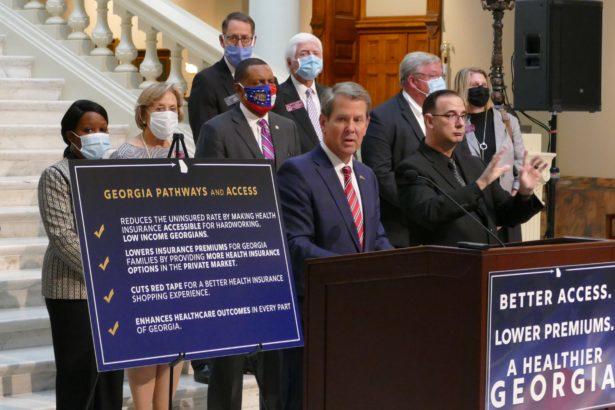
Caption
Gov. Brian Kemp discusses health care waiver plans for Georgia in a 2020 press conference. While the Trump administration approved Georgia's waiver requests, the Biden administration has taken a more critical view.
Credit: Georgia Health News

